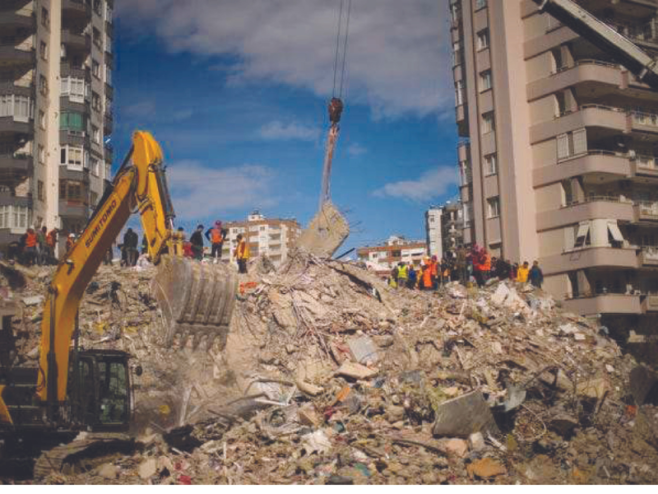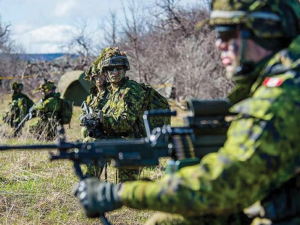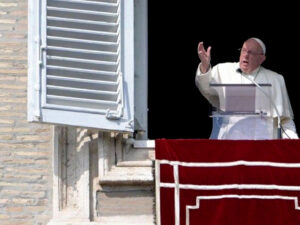ANTAKYA, Turkey — Rescuers struggled to dig people out of the rubble of collapsed buildings on Tuesday in a “race against time” as the death toll from an earthquake across a wide area of Turkey and Syria passed 5,000.
The magnitude 7.8 quake – the deadliest in Turkey since 1999 – hit early on Monday and was followed by a second hours later. The epicenter was 23 km east of Nurdagi, in Turkey’s Gaziantep province. A series of aftershocks have been recorded.
President Tayyip Erdogan on Tuesday declared as a disaster zone the 10 provinces affected by the devastating earthquakes in southern Turkey, imposing a state of emergency in the region for three months.
Erdogan said 70 countries had offered help in search and rescue operations and that Turkey planned to open up hotels in the tourism hub of Antalya, to the west, to temporarily house people impacted by the quakes.
He said the death toll in Turkey had risen to 3,549 people.
Thousands of buildings were toppled, hospitals and schools wrecked, and tens of thousands of people were injured or left homeless in several Turkish and Syrian cities.
A UN official said thousands of children may be among the dead.
Harsh winter weather hampered search efforts and the delivery of aid and made the plight of the homeless even more miserable. Some areas were without fuel and electricity.
Aid officials voiced particular concern about the situation in Syria, already afflicted by a humanitarian crisis after nearly 12 years of civil war.
In Turkey, the death toll had climbed to 3,419 people by Tuesday morning, Vice President Fuat Oktay said. In Syria, the death toll stood at just over 1,600, according to the government and a rescue service in the insurgent-held northwest.
Turkish authorities say some 13.5 million people were affected in an area spanning roughly 450 km from Adana in the west to Diyarbakir in the east, and 300 km from Malatya in the north to Hatay in the south. Syrian authorities have reported deaths as far south as Hama, some 100 km from the epicenter.
“It’s now a race against time,” World Health Organization Director General Tedros Adhanom Ghebreyesus said in Geneva. “Every minute, every hour that passes, the chances of finding survivors alive diminishes.”
Turkey’s Disaster and Emergency Management Authority (AFAD) said 5,775 buildings had been destroyed in the quake, which was followed by 285 aftershocks, and that 20,426 people had been injured.
In Geneva, UNICEF spokesperson James Elder told reporters: “The earthquakes … may have killed thousands of children.”
Across the region, rescuers toiled through the night and into the morning searching for survivors as people waited in anguish by mounds of rubble, clinging to the hope that friends and relatives might be found alive.
In the Turkish city of Antakya, capital of Hatay province near the Syrian border, a woman’s voice was heard calling for help under a pile of rubble.
Reuters journalists saw the body of a small child lying lifeless nearby.
Weeping in the rain, a resident who gave his name as Deniz wrung his hands in despair.
“They’re making noises but nobody is coming,” he said. “We’re devastated, we’re devastated. My God… They’re calling out. They’re saying, ‘Save us’ but we can’t save them. How are we going to save them? There has been nobody since the morning.”
Families slept in cars lined up in the streets.
Ayla, standing by a pile of rubble where an eight-storey building once stood, said she had driven to Hatay from Gaziantep on Monday in search of her mother. Five or six rescuers from the Istanbul fire department were working in the ruins.
“There have been no survivors yet. A street dog came and barked at a certain point for long, I feared it was for my mother. But it was someone else,” she said. (A. Hachero, J.Montemayor and V. Reyes/Reuters/Malaya)








